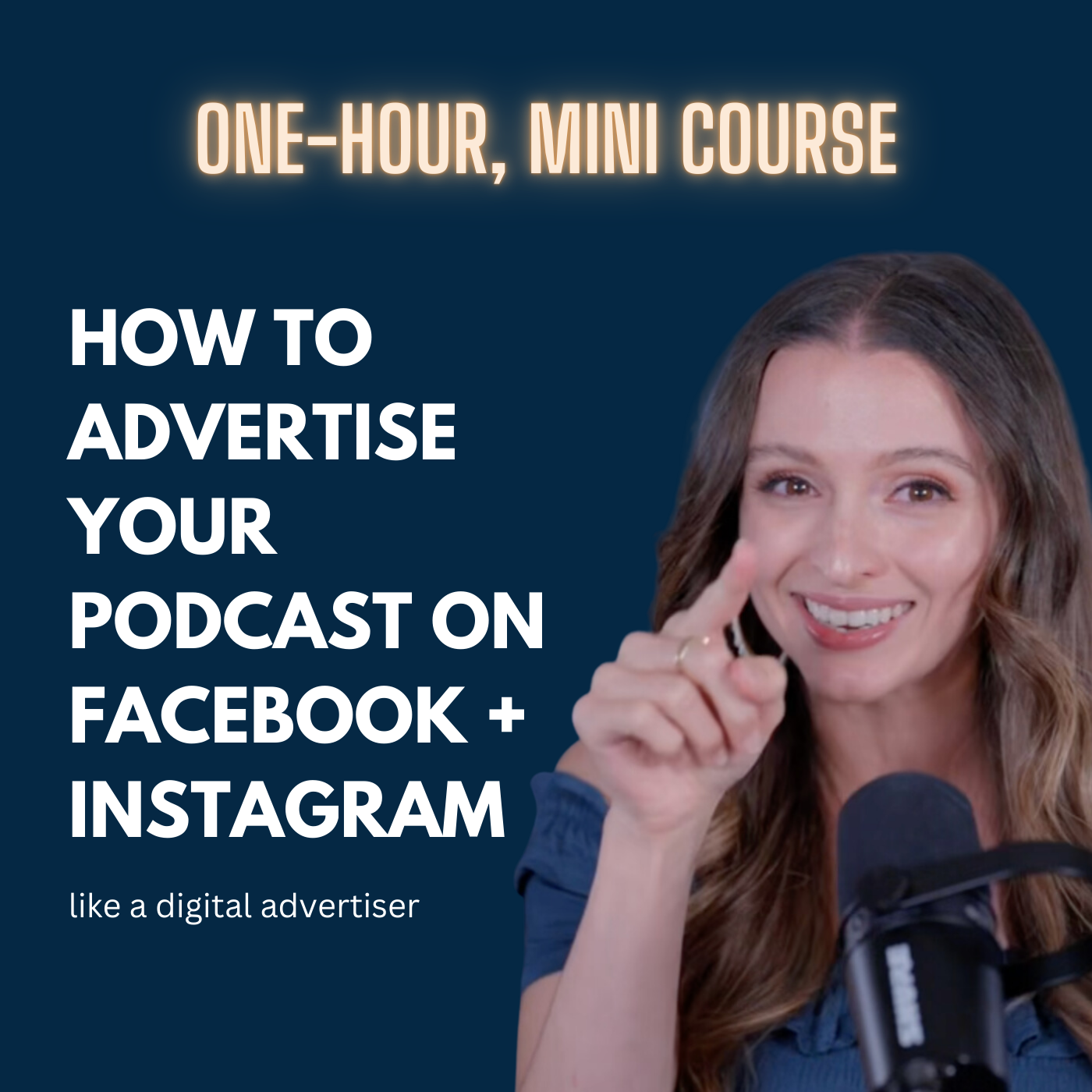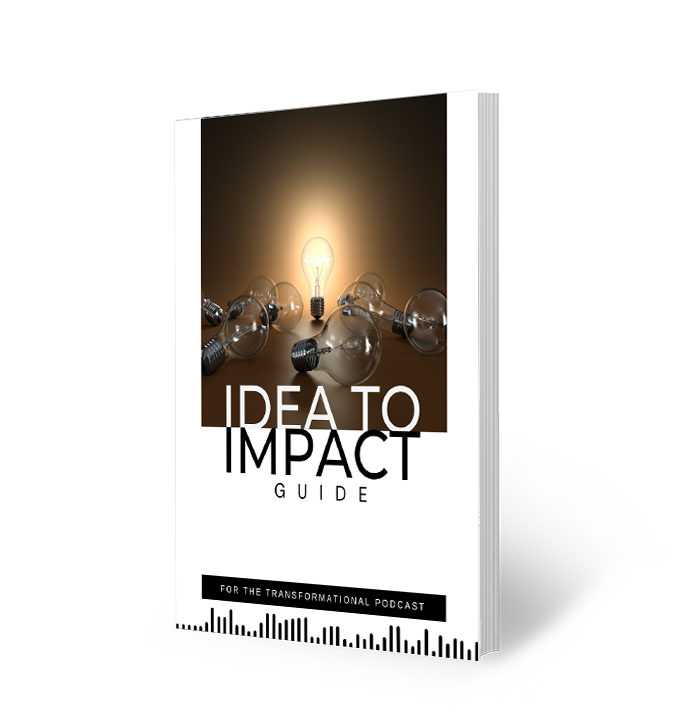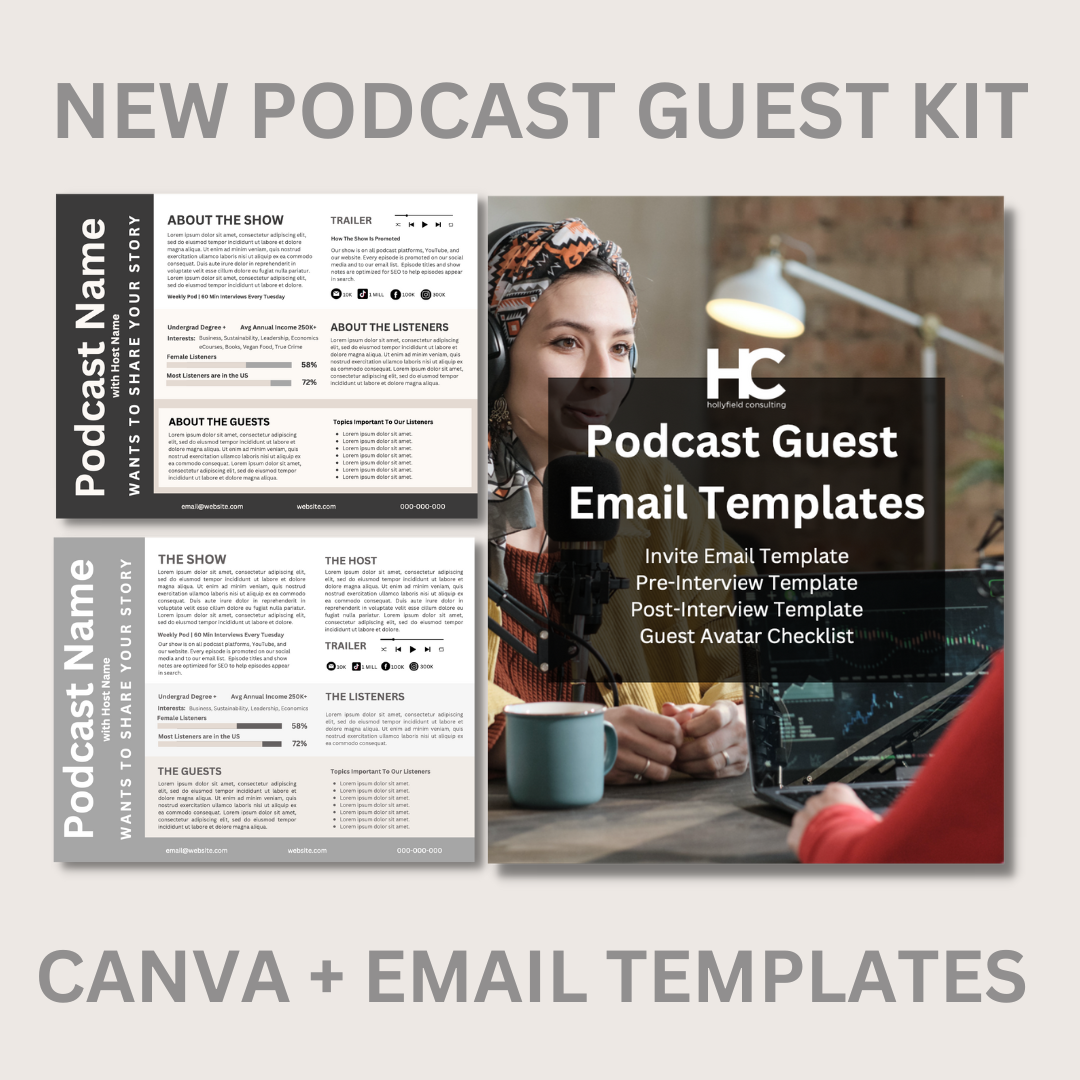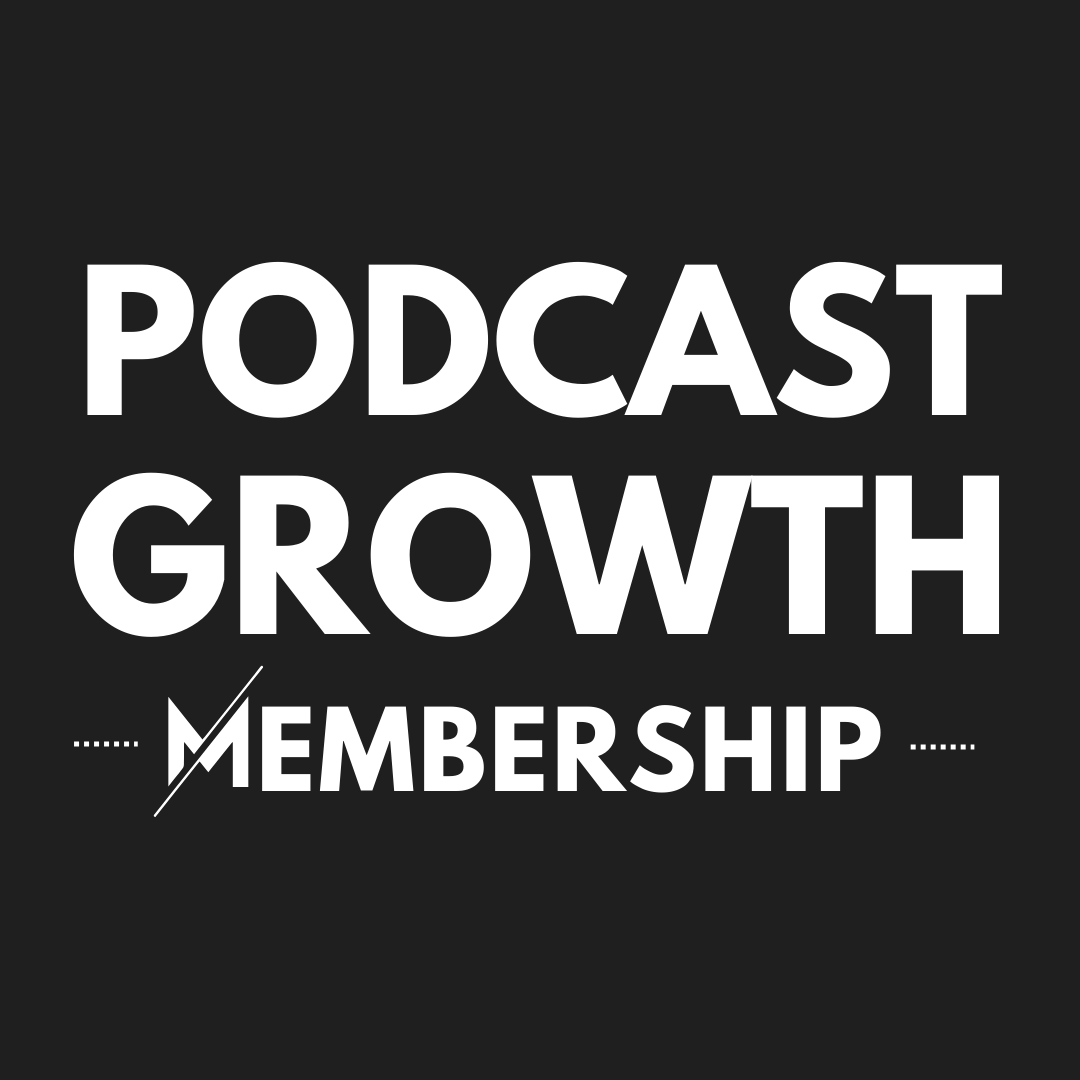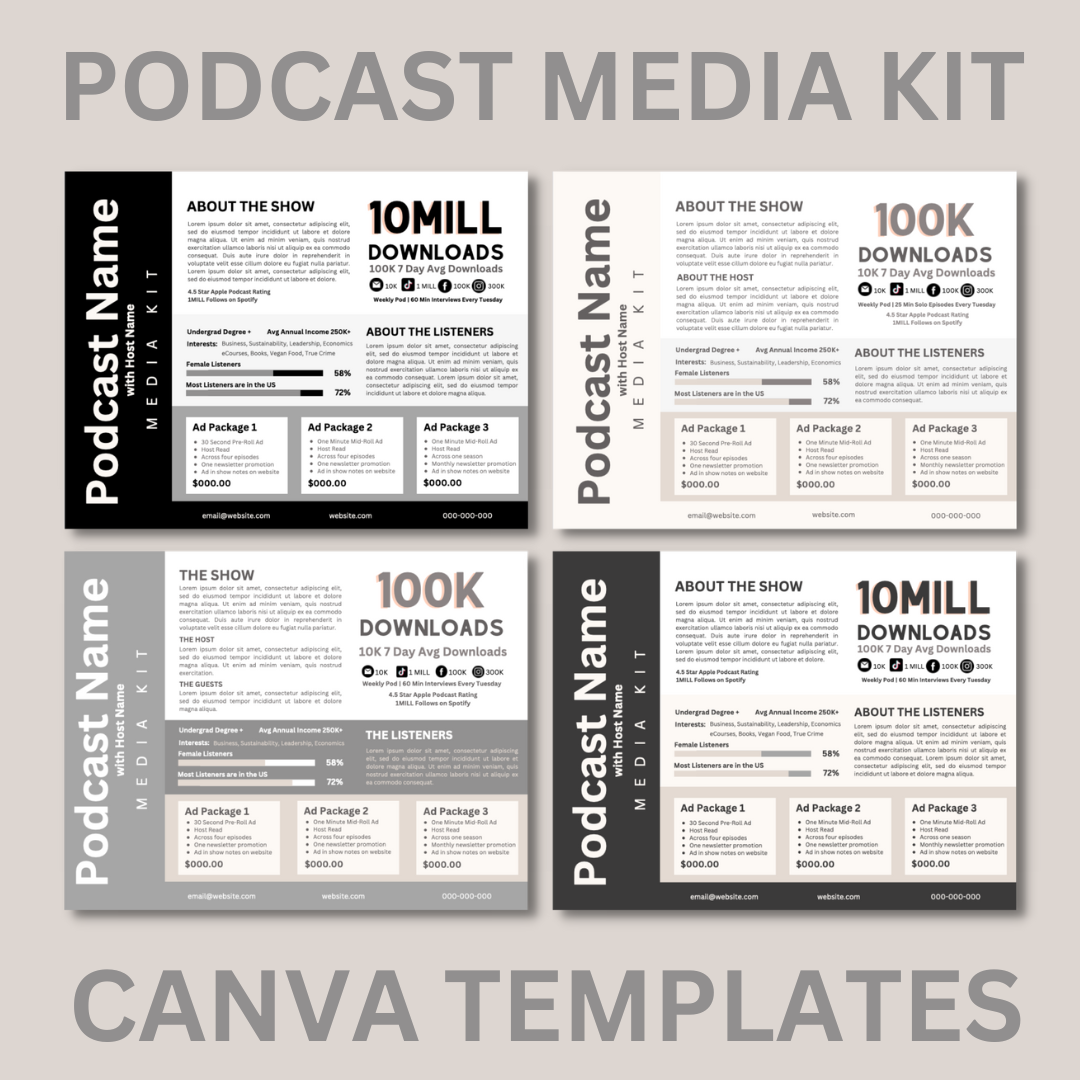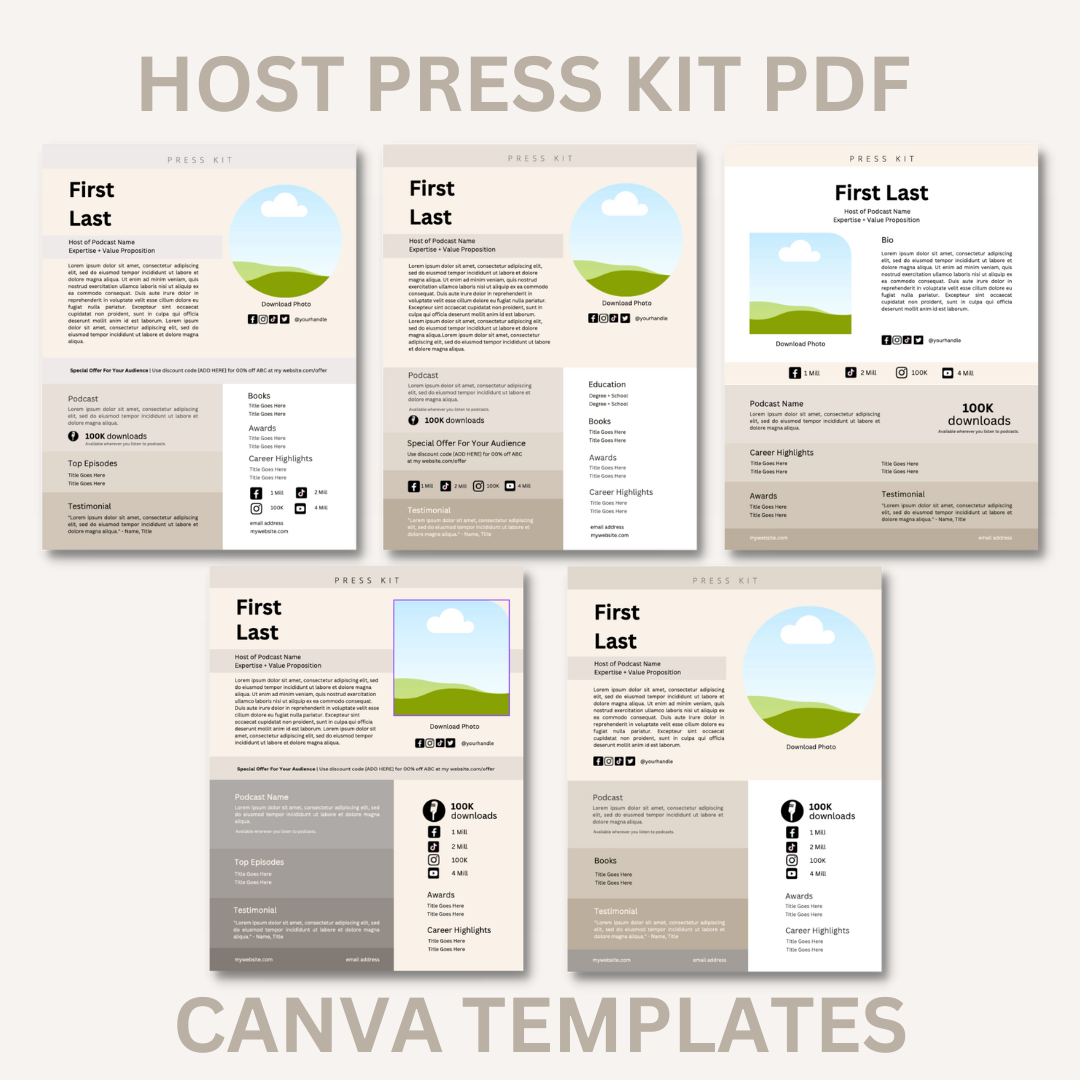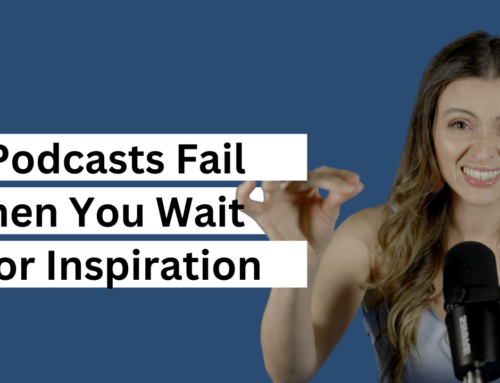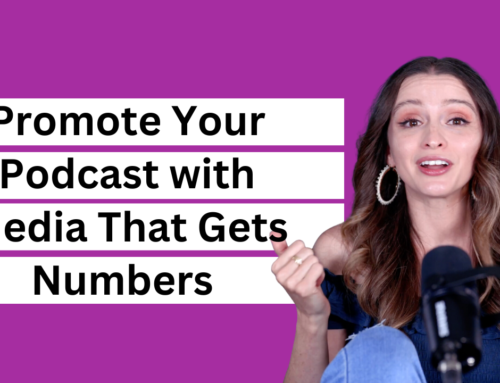Being a guest on podcasts that share your ideal audience is one of the most successful ways to grow your podcast and brand reach.
We call this audience sharing!
The key to becoming a sought-after podcast guest is to have a clear message so hosts can quickly and easily understand the value you bring to their audience. The looser your message, the harder it will be to become a top choice – you’ll be one of many versus the best of a few. If you’ve invested in your marketing and branding process, you’ll know this sounds like niching down and differentiating!
Being a great guest goes beyond being a good conversationalist. It’s getting good at sharing the right stories and adding value to the show.
To become a sought-after podcast guest, you must refine your message and build relationships. This process starts way before you ever get booked on a show.
Refine Your Message
If you watched the show Friends, you know the group never understood what Chandler did for work. Unfortunately, this happens to multi-talented or multi-disciplined people, making it challenging for others to understand what they do and why.
Chances are, if you’re on this blog, you are a thought leader, author, podcaster, or social-good entrepreneur. You have a specific message, even if you can authoritatively talk on many subjects – you have a plumb-line that brings it all together!
If you have not already refined your message and brand (I’m not talking logos here), it’s time to do the work because if hosts don’t have a clear idea of the value you bring to the table for specific topics, chances are your branding is too loose in other areas.
The clearer your message is, the easier it will be for hosts to understand the value of booking you as a guest.
Next steps:
- Can you easily communicate the problem you want to solve and your proposed solution through your unique perspective?
- Work on your elevator pitch. How quickly and clearly can you share your core message with others?
Demonstrate Your Value
The value you bring as a guest is not the same as your expertise or even your experience.
For example, you could be an economist, but the value you might bring to a podcast would be your ability to help people living paycheck to paycheck understand what changes in the economy means for their everyday life and how to prepare better.
By sharing the value you bring to an area of expertise, hosts can better understand how you can connect with their target audience.
The value you bring to the table is typically your unique perspective and passion for a specific area within your expertise. It makes you unique and is usually in line with your brand differentiation.
Examples of expertise versus value:
- Expertise: Personal Finance. Value + Unique Perspective: How Hispanic entrepreneurs can create a legacy for their children.
- Expertise: Marketing and Podcasting. Value + Unique Perspective: How social-good entrepreneurs can apply time-tested marketing strategies to a podcast to create a movement.
- Expertise: Organizational Culture. Value + Unique Perspective: How organizational culture is a competitive advantage that will curb the Great Resignation.
When you clearly demonstrate and show your value, it makes it easy for hosts to understand how to set up an interview and promote your episode.
Next steps:
- Work on your value proposition. How clearly can you communicate the unique value and perspective you bring to a conversation about key topics?
Develop Clear Talking Points
A big mistake people make is developing many talking points instead of focusing on a few very targeted messages where they bring maximum value. We cannot be all things to all people.
You’ll be encouraged to niche down and refine your message in any branding and marketing process – this is also true when developing clear talking points as a guest.
You want to be very specific when you bullet out your talking points on your online press kit, PDF, or email.
It’s the difference between:
- Discussing economics and how economics influences people living below the poverty line.
- Being a professional ballerina versus a professional ballet dancer discussing how cross-training has evolved.
- Being an expert in organizational psychology but being a thought-leader on what data reveals about orgs and how C-Suite leadership needs to evolve to retain employees.
Your unique insight should shine through when listing your talking points.
Next step:
- Work on a list of five clear talking points and add your unique value to each topic.
Craft Your Story & Key Stories
Once you fully understand your expertise versus your value and have a strong list of topics you can address, it’s time to explore key stories and personal experiences you can share related to these topics.
Storytelling plays a significant role in not sounding like a salesperson during an interview. No one cares about your books, brand, or message until they care about you!
Storytelling is one of the most valuable tools in teaching and marketing. Whether someone listens to an academic lecture or a podcast, they don’t remember your four points of transformation; they remember the story you tell to illustrate those points.
Stories are what listeners and hosts go on to share with others.
Great storytelling combines vulnerability and strong execution. When a guest can deliver an honest story that shares an emotional and maybe even literal journey, they do better at creating something memorable for the listener and host.
To avoid telling the same stories over and over, mine your experiences often and develop personal stories you can share in your interviews. Being a clear and captivating storyteller is one of the keys to becoming a sought-after guest.
Next step:
- Develop a list of personal stories for each of your talking points.
- Come up with the main story around your value proposition. What happened in your life that led you to this unique perspective?
Know The Host’s Message & Audience
Great conversations come from building relationships and creating what I love to call “rhythm.” Rhythm is that dynamic between the guest and the host that makes magic for the listener.
You have a better chance of creating “rhythm” with your host if you’ve done your homework on their show and audience.
Doing your homework on the host and their audience will help you better craft your message and even cultivate key stories that will be especially relevant to the show.
The beauty of being a podcast guest is that there are likely boatloads of episodes you can listen to before your interview to learn more about the host! As a result, you can show up to an interview knowing critical details about the host’s message and even inside jokes between host and listeners that will create dynamic and fun conversation.
If the host enjoys time with you, they’ll invite you back. And if the listener hears the host enjoying the conversation, they will likely seek you out for more.
Next steps:
- Listen to previous episodes and write down core messages and stories from the host. Who are they, where are they from, what do they care about, and what is the show’s core message? What does the host say about their listeners?
- What personal stories do you have that are relevant to the host and their audience?
Be Generous In Conversation
Have you ever talked to someone and felt they didn’t listen to you but just responded with their next point regardless of what you had to say?
Responding to respond instead of listening deeply is precisely what you don’t want to do as a podcast guest, and it’s a fast way to lose “rythm” in an interview. So instead, while you are the highlight of the episode, your goal should still be to build a relationship with the host.
A great interviewer will make you the conversation’s hero and ask you to go deeper every time you tell a story, but to achieve a compelling dynamic, you must lean in as they lead. When they ask for more, be honest, and share how you felt and what you thought. Mine your personal story with them – if you’ve done your homework on your key messaging, this gets much easier in real time.
Rember, the audience doesn’t care about what you have to sell until they care about you as a person.
So, go with the ebbs and flow of the conversation. Let the host lead the dance and share openly and honestly. If you have done your homework, you know why you are there, and it’s less about selling and more about sharing personal experiences that align with the show’s message.
When you do this well and have a clear call to action somewhere in the interview, people will be more likely to act!
Be you. You’re enough.
Next steps:
- Practice listening deeply in every day conversation and carefully following up in each interaction.
- Work on going deeper in all of your core messaging. Dig into your thoughts, actions, and conscious or unconscious responses. Go deep.
Create Your Online Press Kit
Every speaker needs a press kit. From a practical standpoint, you want something easy you can send to hosts with high-resolution photos, your bio, social media links, and more.
Make it easy for hosts to promote you.
I typically encourage you to build an online press kit off your brand website or a site that applies to the message you are trying to promote as a guest.
Next step:
- Create a landing page for your press kit off of your website.
- Ensure your press kit illustrates your speaking topics and shares your value proposition in addition to your expertise.
- Your press kit should have a bio, high-resolution photo for download, speaking topics, education/experience/what qualifies you, and other media.
Create Your “Why Me” Speaker Video
Podcast guest pairing sites like MatchMaker ask that hosts create a “Why Me” video for their profile. It’s a quick way for hosts to get an idea of their personality, differentiation, and value proposition.
Your “Why Me” video address the points we just covered; it needs a clear message that shows the value and unique perspective you bring to topics based on your experience and expertise. And most of all, the best “Why Me” videos are told through the lens of a personal story. Use that key story around your core message to illustrate why you are the right guest for a certain type of podcast.
Next step:
- Work on your “Why Me” script.
- Use this script prompt:
- Who are you, and what is your area of expertise plus experience? (Tell a story)
- How do your experiences inform a unique perspective you have for your area of expertise? (Tell a story)
- Share your value proposition. How will your expertise and unique perspective benefit the host’s audience?
- What transformation do you hope listeners experience after you guest on a show?
- Use this script prompt:
- Sign up for MatchMaker and/or PodGuests and develop your profile.
- Get your Why Me video on your press kit landing page.
Develop Your Online Platforms
When hosts do their homework and research podcast guests, they won’t just look at your profile on guest matching platforms; they will seek you out on social media.
If you don’t control what people see and read about you, they will develop assumptions based on what they DON’T see. Your online footprint creates an impact whether you try or not. One of my favorite consulting and coaching mentors preaches this message in her brand development work; she is spot on!
You need to evaluate your online footprint as you increase your brand reach. It’s vital for anyone trying to increase their podcast guesting to review their social media and make sure it reflects the message, aesthetic, and tone you want to convey.
Next step:
- Do your online platforms convey what you want to prospective hosts and their listeners?
- Create a plan to develop clean, branded online platforms.
- Do your graphics, videos, and posts create a clear and clean branded look? Do they share the right message?
Quick Podcast Guest Dos and Don’ts
Do:
- Listen deeply and adjust with the flow of the conversation.
- Do your research on the host and the show. Listen to at least three episodes.
- Create a relationship and don’t sell yourself. People don’t care about what you have to offer until they care about you.
- Develop key stories that inform your unique perspective around your area of expertise.
- Create your online press kit.
- Write your script and record a “Why Me” guest video for your speaker profiles.
- Evaluate your online footprint and create a strong plan.
- Make sure you have good audio and video.
- Do the prep work asked for by the host.
- Lose your ego and have a good time.
Don’t:
- Show up to an interview without researching the host and the show.
- Only talk about your brand without sharing personal stories, experiences, and details that cultivate relationship.
- Speak over the host or press on to your next point instead of going with the flow of the conversation.
- Use ignore their recommended prep work.
- Have bad audio and video on your end. It can make the episode unusable.
- Skip promoting your interview.
Podcast Guest Matchings Platforms
- Use Podchaser to find guests and be a guest. Podchaser is referred to as the IMBD of podcasting.
- MatchMaker is the Tinder of podcasting guesting and it’s free! Use it either to find podcast guests, or to put yourself forward to be a guest on other shows.
- PodGuests is a subscription service that will help you get booked on podcasts.
The monthly membership for hosts that want to grow their tribe, downloads, and influence.
The Podcast Growth Membership is a one-stop shop for the strategic insight and easy-to-implement tools you need to grow your podcast. Improve the quality of your show, promote episodes with ease, increase your social presence, and create rinse-and-repeat systems that help you thrive.
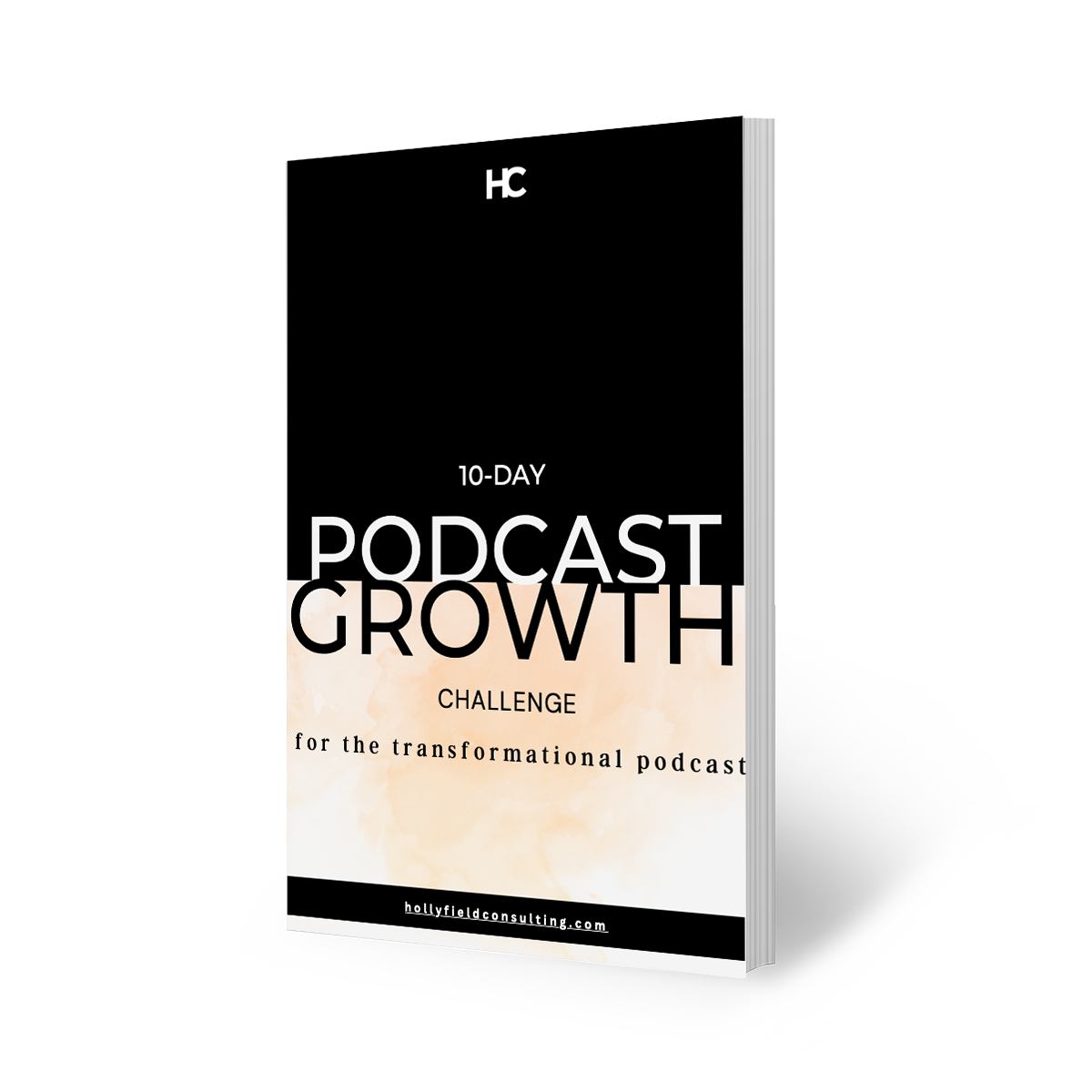
10-Day Podcast Growth Challenge | Free Download
There is no secret sauce! Podcast growth is simple, but it’s not easy.
This ten-day challenge will ask you to drill down on your audience and the value you deliver. The truth is if you don’t have a clear message that solves a problem for a specific group of people, it won’t matter how much money you spend or how balls-to-the-wall you go with tactical promotion – your podcast won’t see long-term subscriber growth. This challenge best suits transformation podcasts trying to take someone from A to B.
Grow your podcast and yourself in this ten-day challenge.




